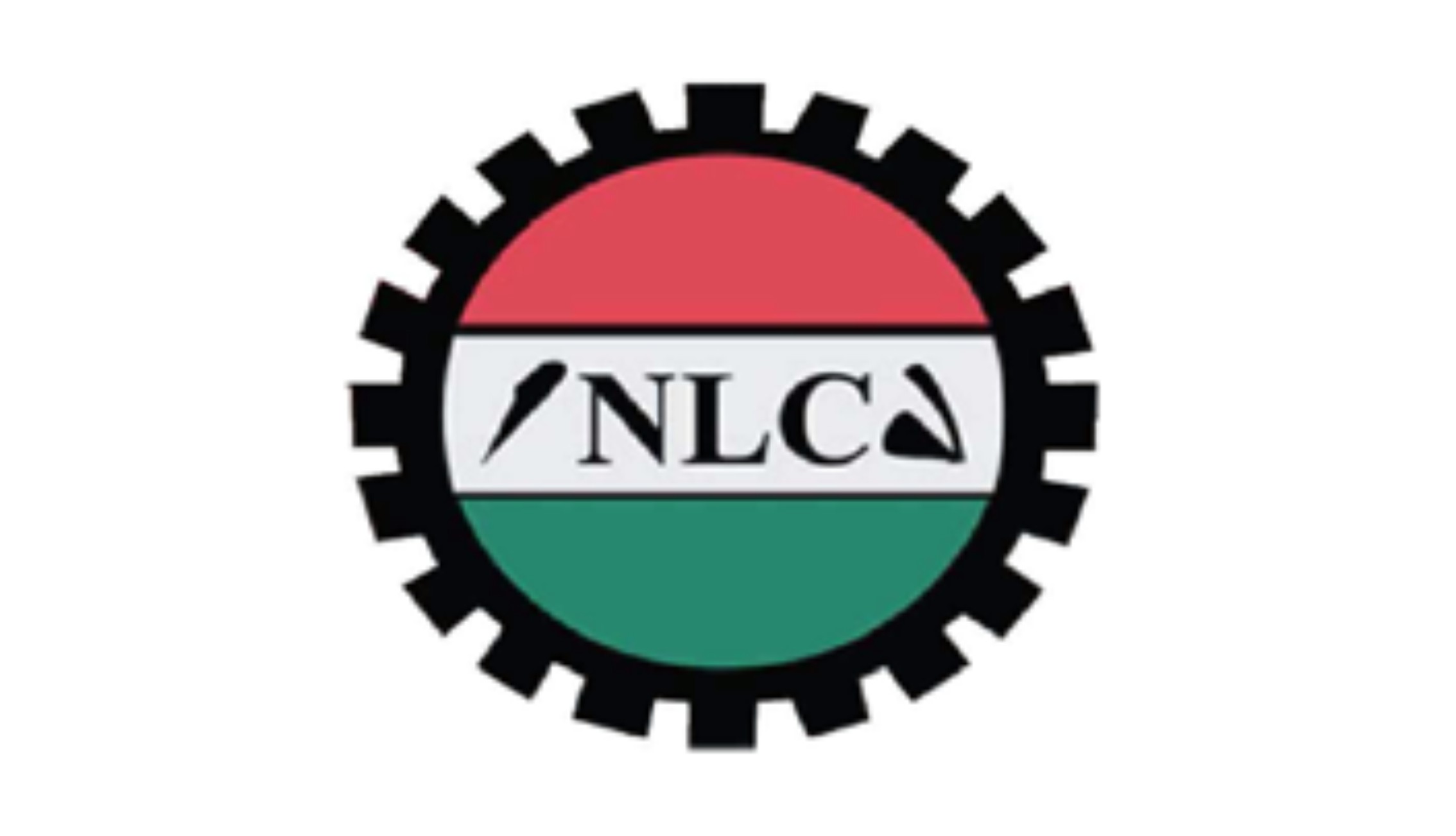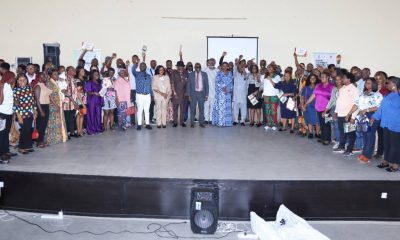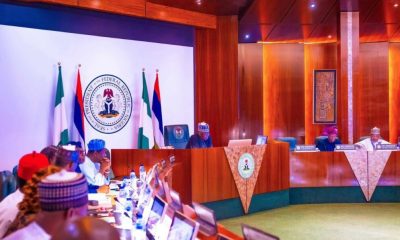Featured
First Lady, Govs’ Wives Sign Agreement To Combat GBV

The First Lady, Sen. Oluremi Tinubu, has signed an agreement with governors’ wives to combat Gender-Based Violence (GBV) and harmful social practices against women.
The agreement was signed in Abuja, yesterday, at the first Gender and Social Norms Summit 2024, organised by the UN Population Fund (UNFPA) and the Renewed Hope initiative, in collaboration with the Office of the First Lady.
In her keynote address, the first lady said that the prevalence of harmful practices such as Female Genital Mutilation (FGM), assault on women, and Child Marriage, which in some cases lead to Vesicovaginal Fistula (VVF) remain unacceptably high.
According to her, incidences of such practices have continued to increase in spite of various efforts.
She also said that recently, the spate of rape cases and GBV had reached an alarming rate, not sparing babies too.
“Do we allow this trend to continue, or do we look the other way?.
“That is why I am calling on law enforcement agencies, the Inspector-General of Police, the Attorney-General of the Federation and the National Assembly (NASS) to appropriate and enforce stiffer laws and punishments for perpetrators of rape, sexual violence and other forms of GBV.
“No guilty party should be allowed to go free and start roaming the streets looking for the next victim.”
Tinubu, however, said that collective action was needed to put an end to the practices.
She advocated the development of state-specific action plans to promote the allocation of adequate resources in government budgets to support gender equality initiatives and GBV prevention programmes.
She added that “this summit provides us with common platform to create awareness, exchange lessons learned and promote effective strategies toward preventing and responding to GBV and harmful practices.”
The UNFPA Officer-In-Charge, Mr Koessan Kuawu, said family planning is not only a crucial health intervention but a cornerstone
of gender equality and women empowerment.
He, however, noted that social norms drive misconceptions and cultural barriers in many communities across the country, hindering the uptake of family planning.
According to him, Nigeria occupies a unique position globally in the pursuit of the Sustainable Development Goals (SDGs) for 2030 due to its vast population.
He commended the Federal Government “for its steadfast dedication to creating an enabling environment through the passage and enforcement
of critical legislations such as the Violence Against Persons Prohibition (VAPP) Act 2015.
“The implementation of the National FGM Policy, the National Child Marriage Policy, and state-specific action plans are also highly commendable to eliminating the menace.
“These milestones have been achieved through persistent advocacy, aimed at strengthening the adoption and implementation of these laws.”
He explained that though eliminating GBV and harmful social practices is an immense task, it is not insurmountable.
“With the right resources, political will and community support across the states, we can change the narrative for women and girls in Nigeria,” Kuawu said.
On her part, the Minister of Women Affairs and Social Development, Mrs Uju Ohanneye, advocated stricter penalties for perpetrators.
She explained that “overseas, where people are afraid to commit crimes or social norms or things that can harm another, it’s because when
you do it, you face the consequences, legally and otherwise.
She reiterated the commitment of the ministry to support and implement programmes toward eliminating GBV.
The Attorney-General of the Federation, Lateef Fagbemi (SAN), defined social norms as unspoken rules or expected behaviours that
set social standards of appropriate and inappropriate manners in a specific culture or social group.
Fagbemi, who was represented by the Solicitor-General of the Federation, Mrs Beatrice Agba, said “GBV encompasses various forms of violence
directed at individuals based on their gender, often rooted in unequal power dynamics and societal norms.”
He, however, noted that the practices “may unfortunately be attributed to the patriarchal and male dominance theoretical framework in place in our society.”
He said that the Federal Ministry of Justice is fully aware of the crucial roles that the justice system plays in addressing gender and social norms
through the provision of a framework for accountability, protection and empowerment.
He added that by upholding the rule of law, promoting gender equality and advancing justice for all, the justice system could contribute significantly
to creating a more inclusive, equitable and just society for the present and future generations.
Also, that in addition to ongoing legislative reforms, the ministry was working with critical stakeholders to engage community actors such as traditional rulers,
faith-based organisations, and informal community justice systems to address the notions and institutions that perpetrate violence against women and girls.
“We are initiating a pilot phase with the Area Councils in collaboration with area council chairmen to support ongoing dialogue and initiatives on this subject,” he said.
Featured
RSG Commences Revitalization Of 200 Health Centres

Featured
Nigeria Accounts For 70% Of 11m Illegal Arms In W/Africa

The National Center for the Control of Small Arms and Light Weapons (NCCSALW) says that Nigeria is accountable for 70 per cent of 11 million illegal arms and light weapons in West Africa,
Mr Alex Ebimiebo, the South South Zonal Director of the NCCSALW, made the remark at the Naval Warfare Course 9 Inter-Agency seminar, organised by the Naval War College in Calabar on Thursday.
Ebimiebo presented a paper themed, “Strengthening Security Agencies Collaboration to Counter Illicit Arms Proliferation for Enhanced National Security in Nigeria.”
He said that the illegal arms dealings were largely responsible for Nigeria’s 2.2 million Internally Displaced Persons (IDPs) and 26,000 refugees in neighboring countries.
Ebimiebo further said that arms proliferation had led to economic distortions, an increase in violence, crime, and impediment to peace building.
He, however, called for concerted effort from all Nigerians to tackle the menace, saying that NCCSALW would take the fight to the society since security is the responsibility of everyone.
“So, as a result, everybody is a stakeholder, so as such, we need to involve the whole society in this fight and the center has a lot of programmes for collaboration with our sister agencies.
”We also have advocacy and sensitisation programmes that we take to members of the general public from time to time,” he said.
Meanwhile, Rear Adm. Akinola Oludude, Commandant, Naval War College, expressed concern on the influx of illicit arms into Nigeria since 2020.
He attributed this to the extensive borderline of about 4,470 kilometers between Nigeria, the Republic of Benin, Niger, Chad, and Cameroon.
He also noted that the nation’s maritime domain that extended over 853 kilometers of coastline and of the Gulf of Guinea had also not helped.
The commandant said that the 2021 survey by the NCCSALW revealed that over six million illegal weapons were in circulation in the country.
Oludude said that out of the figure, about 70 per cent were in the hands of non-states actors.
”The impact of this illicit arms proliferation is profound and multifaceted.
”These weapons bred various forms of insecurity, including terrorism, banditry, kidnapping, communal clashes, and armed robbery.
“Inter-agency collaboration is needed to tackle the proliferation of illicit arms and weapons,” he said.
Oludude said that no single agency, no matter how well-resourced, no matter how well-dedicated, could effectively tackle the complex challenge alone.
He stated that the nature of the recent arms proliferation demanded a joint and multi-agency approach.
“Therefore, this seminar provides a vital platform for us to collectively examine the complexities of this complex challenge,” he said.
Also speaking, the Flag Officer Commanding (FOC), Eastern Naval Command, Rear Adm. Kennedy Ezete, urged the participants to translate the discussions and recommendations of the seminar into concrete actions.
He advised the participants to take the knowledge and insights gained to their respective agencies and organisations and implement them
According to him, “we must ensure that the suggestions and way forward developed here are implemented effectively and that the partnerships forged are sustained.
”This requires a commitment from all stakeholders, including the leadership of our security agencies and the wider community.
”Share your experiences, implement the strategies that have been suggested, and continue to work collaboratively to counter illicit arms proliferation.
“We must also continue to invest in training, technology, and intelligence gathering to enhance our capabilities.”
Featured
NLC Threatens Strike, Issues Seven-Day Ultimatum

The Nigeria Labour Congress (NLC) yesterday issued a seven-day ultimatum to the Federal Government over its failure to constitute the governing board of the National Pension Commission.
The Labour Centre also accused the government of diverting workers’ funds through the Nigeria Social Insurance Trust Fund.
According to a communiqué signed by its President, Joe Ajaero, the Central Working Committee of the NLC met on Wednesday, August 13, 2025, to deliberate on urgent issues affecting Nigerian workers, the trade union movement, and the nation at large.
The meeting addressed the leadership crisis in the Edo State Council of the NLC, what it described as alarming developments in the NSITF, the governance vacuum in PENCOM, and the broader state of the nation.
The communiqué noted that the CWC expressed outrage at the ongoing assault on workers’ social protection rights through the Federal Government’s diversion of 40% of workers’ contributions to the national coffers as “revenue,” describing it as a flagrant violation of the statutes establishing the NSITF.
“Equally condemnable is the new administration’s false claim of ownership of the NLC National Headquarters, a property owned by Nigerian workers; the resort to cyber and media bullying of the trade unions and leadership, coupled with covert moves to amend the NSITF Act in a manner that would disenfranchise workers and give the government full control over the funds.
“The CWC warns that these actions represent a direct attack on workers’ rights, hard-earned resources, and the principle of tripartite governance enshrined in international labour standards.
“The Congress affirms that the NSITF belongs to the Nigerian working class and will mobilise all legitimate means to ensure workers’ interests are protected,” Ajaero said.
On the steps to be taken, the NLC president stated, “The NSITF must account for and return all diverted funds within seven working days from today.
“The PENCOM board must be properly constituted in full compliance with the law within seven working days from today.
“The Pension Commission must submit to the NLC a full status report of the funds within the same period.
“If at the end of these seven working days, nothing is done, the NLC will no longer guarantee industrial peace in the sector.”
-
Business2 days ago
Bayelsa Recommits To Agro-Economy Diversification … As Delegation Rounds-Off Rwandan Tour
-
Niger Delta2 days ago
Oborevwori Pledges Commitment To Renewable Energy Investments In Delta … As Delta Signs MoU With REA
-
Politics2 days ago
Rivers APC Chairmanship Candidates Hail Tinubu, Yilwatda Over By-Election Victory
-
Business2 days ago
Shippers Council Seeks collaboration Against Stowaways
-

 News2 days ago
News2 days agoOver 1,500 RSU Students Apply For Education Loan
-
Politics2 days ago
PDP Drags Osun Federal Lawmakers To Court Over Defection To APC
-
Business2 days ago
FG Commits To Building Modern Maritime Sector
-
Politics2 days ago
Benue Assembly Resolution: Alia Suspends SUBEB Boss, Others











